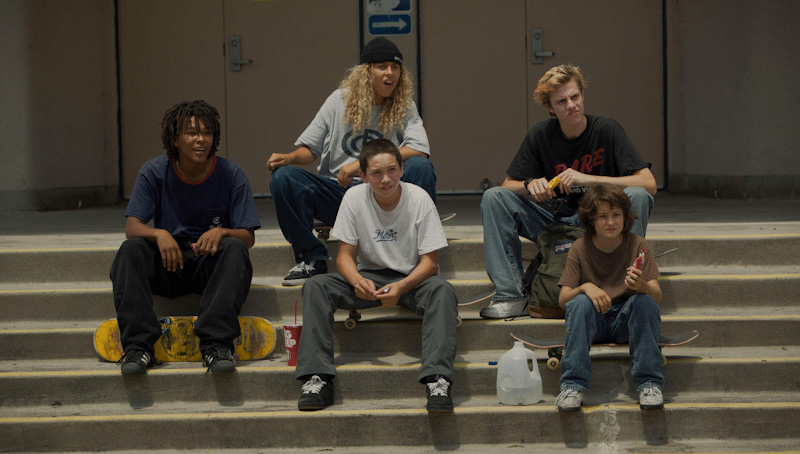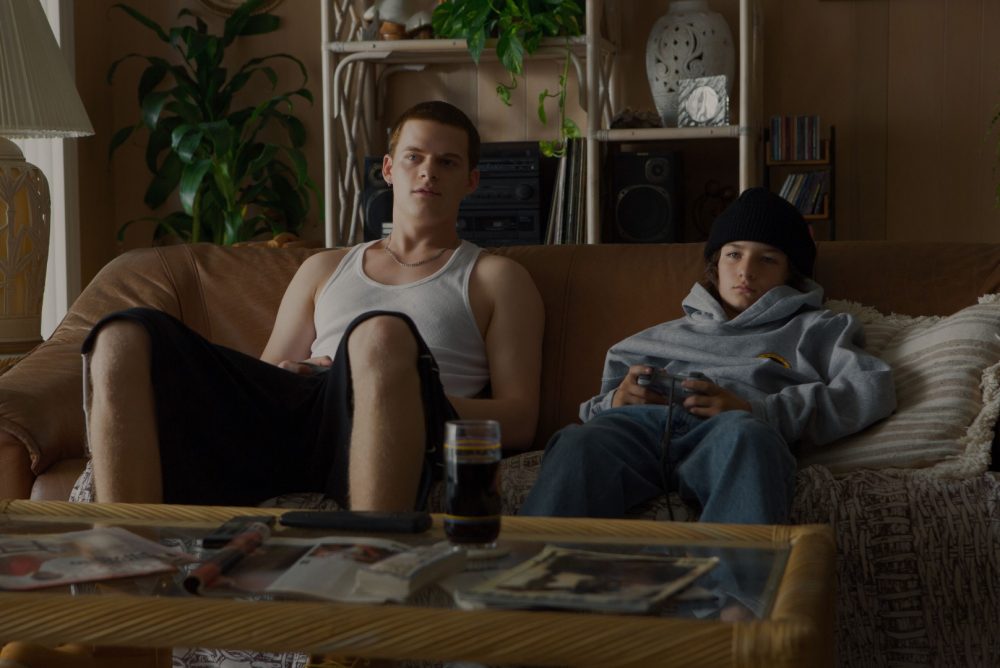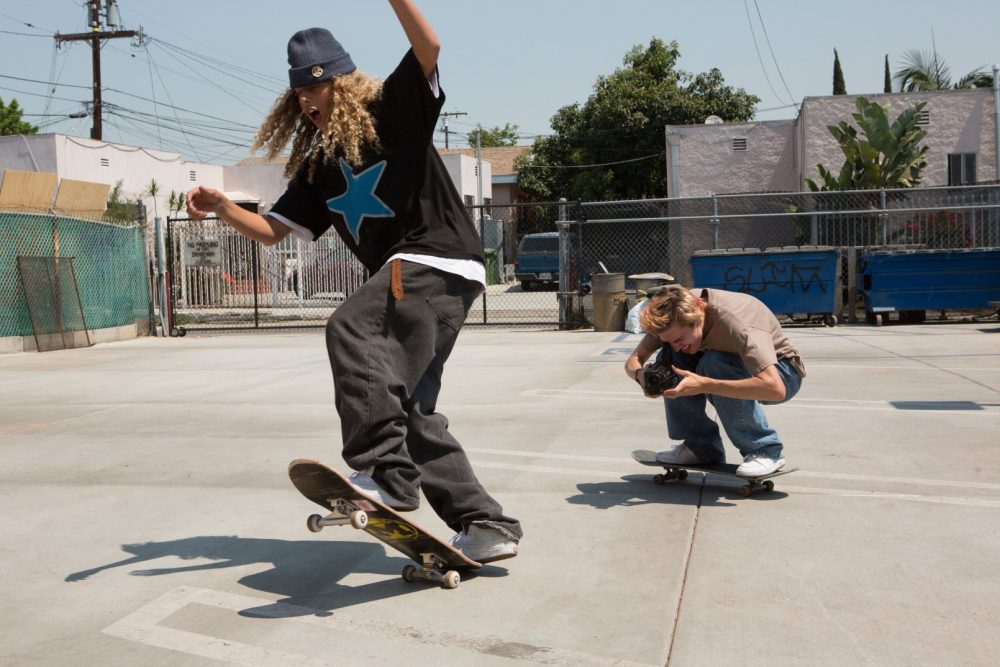Mid90s
Directed by Jonah Hill
A film review by Daniel Nieborski
3.5 stars out of 5

“A lot of the time, we feel like our lives are the worst. But…I think if you looked at anybody else’s closet, you wouldn’t trade your shit for their shit.”
I would write that Jonah Hill transports us to the world of the 1990s in his directorial debut, but the word “transports” seems too magical; too whimsical, for what this film actually depicts. Rather, he effectively pulls us into a world which, although reminiscent of the 1990s, is also harsh, brash, and filled with an abundance of delinquency.
The story follows a young boy, Stevie (Sunny Suljic), exploring his childhood. With a physically abusive older brother at home, he befriends a group of teenagers at a skate shop – Ray, Fuckshit, Ruben, and Fourth Grade – who act tough, party hard, drink, smoke, and everything in between. Through skateboarding, Stevie becomes a part of the group, but as he grows closer to his new friends, he delves deeper into a lifestyle that is increasingly reckless and dangerous.
In a time where nostalgia-trips are commonplace in film and television, it’s rather refreshing to see a film look back on its chosen era without the rose-tinted glasses that often dilute the realities and rawness of a story. Indeed, the very title of this film sets up a false expectation that the story centres around its era. That’s not to say that the film doesn’t capture the mid-1990s – it actually does this incredibly well. The film is entirely presented in a 4:3 aspect ratio, which is an effective stylistic choice reminiscent of home videos from said era. From the Ninja Turtles bedspread, the Street Fighter II merchandise, and the Super Nintendo gaming, the production design is riddled with relatable references and call backs. However, this film isn’t really about the mid-1990s anymore than it is about skateboarding. It would be simple for this film to turn into a series of vignettes depicting cool skateboard tricks, jumps, and stunts – yet Hill refrains from veering in this direction, which works greatly in the film’s favour. The setting and the skateboarding are merely situational contexts that set the stage for the main story to be told – a story about a child who wants to fit in. For a film named after the era it is set in, the story is in itself timeless.

Young actor Sunny Suljic portrays Stevie wonderfully, his magnetic charm means you can’t help but adore his innocence and youthfulness. Never before have I seen a child in a film so excited to pee outside on the pavement, or to fill a plastic bottle with water for their friends – yet that slight smile that Suljic breaks into as Stevie enjoys these little moments warms your heart. This makes his increasing engagement with his new reckless lifestyle all the more tragic. As the film progresses, and that smile becomes increasingly weaker and rare, the tragedy of the character grows – and Suljic manages to pull on every heart string. Na-kel Smith as Ray is also a stand-out in the film, bringing a gentle nature to the character, contrasting with the plot’s brash moments. Some standout scenes are shared between Stevie and Ray – the pair are real and raw, and Hill’s dialogue really elevates these scenes. This relationship amplifies a key theme of the film – these are teenagers who are reckless and make careless decisions, but they’re all in the same emotional boat. Everyone suffers in their own ways. Everyone has problems. Everyone is human. Hill interweaves these ideas into the plot with great care and empathy.
For a film with the tagline “Fall. Get back up.”, it seems to applaud the tenacity of the young Stevie and his ability to rise after every challenge. The issue here is that the challenges are self-imposed through his desire to fit in and be cool – through damaging behaviours. Yes, he does indeed fall. A lot. In turn, he does get back up. In relation to the skateboarding aspects of the film, it’s an inspiring summation of his determination to improve his skateboarding ability. But this film is, at its heart, not about skateboarding. Stevie’s falls are literal and figurative, and with each engagement with misconduct inspired by his new friends, he suffers. Then he gets back up. Then he repeats. I don’t believe the film intends to glorify the damaging behaviours of the youth in the film and indeed many youth of the mid-1990s. However, one would think that if this were the case, at least a single character would learn or reflect on the self-damaging actions they’re undertaking. Yet there’s an absence of moments akin to this. The scenes we received in the film were well written, directed, edited and acted, but one can’t help but feel the weaknesses of the film result from the absence of these scenes of retrospection and growth.
This film will not be for everyone – but it doesn’t try to be. It’s funny. It’s awkward. It’s tragic. It’s rude. But above all, it’s a reflection. Regardless of its omitted moments, Mid90s is an unembellished and genuine look at flawed teenagers in a time of recent nostalgia, without relying on said nostalgia. Jonah Hill’s directorial debut shows great strength and promise for this new step in his career, and I await his next outing as a director with pleasure.

